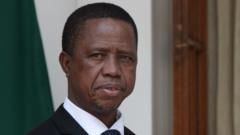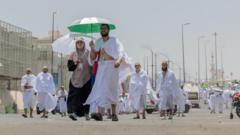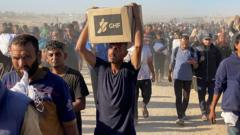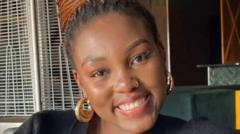Hendricks' untimely death highlights both the ongoing struggles for LGBTQ+ acceptance in the religious sphere and the resilience of activists determined to continue his work. Despite facing hostility from traditional religious authorities, Hendricks had made significant strides in advocating for inclusivity within Islam.
The Legacy of Muhsin Hendricks: Trailblazer for LGBTQ+ Rights in a Conservative Society
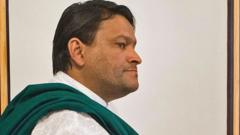
The Legacy of Muhsin Hendricks: Trailblazer for LGBTQ+ Rights in a Conservative Society
The tragic killing of Muhsin Hendricks, the first openly gay imam in South Africa, has sparked outcry and reflection within the LGBTQ+ community and religious circles.
The execution-style killing of Muhsin Hendricks, South Africa's first openly gay imam, has sent shockwaves through the LGBTQ+ community and beyond. As news of his tragic death spread, LGBTQ+ advocates expressed fear but also unwavering determination to continue fighting for their rights within religious frameworks, seeking a space where their identities can coexist with their beliefs.
Reverend Toni Kruger-Ayebazibwe, an openly gay Christian cleric, described Hendricks as a "gentle spirit" who brought positivity to those around him. “The gap Muhsin leaves is massive," she reflected, noting that many queer Muslims worldwide are mourning his loss. Hendricks, 57, was fatally shot in Gqeberha, South Africa, during what his organization, the Al-Gurbaah Foundation, clarified was a visit to officiate the marriages of two interfaith heterosexual couples, countering initial reports that he was performing a same-sex ceremony.
Hendricks' commitment to inclusivity was evident in his willingness to perform interfaith ceremonies, challenging traditional Islamic interpretations that exclude such unions. Despite his significant contributions, he faced ostracism from conservative bodies like the Muslim Judicial Council (MJC) and the United Ulama Council of South Africa (UUCSA), which viewed his lifestyle as inconsistent with Islamic teachings. Their refusal to acknowledge him as an imam—referring to him merely as "Mr. Hendricks"—underscores the resistance to his progressive stance.
South Africa has a vibrant LGBTQ+ community, being the first African nation to legalize same-sex marriage in 2006. However, traditional religious groups have largely avoided accepting LGBTQ+ rights, with only a few, such as the Dutch Reformed Church and the Methodist Church of Southern Africa, taking steps towards recognition. Reverend Ecclesia de Lange of Inclusive and Affirming Ministries emphasized that despite some progress, there remains a significant conservative backlash within various faith communities against LGBTQ+ inclusion.
Dr. Fatima Essop, a senior lecturer in Islamic Studies, criticized the online vitriol following Hendricks' death, denouncing the hatred that strays far from the essence of Islamic principles, which should promote compassion and mercy. She noted that fear stemming from Hendricks' murder may silence others from discussing their sexual orientations.
While LGBTQ+ leaders are reassessing their safety measures in light of the violence, they remain resolute in their advocacy efforts. Hendricks has already been laid to rest, though his foundation has promised to organize a memorial to honor his invaluable contributions. As Teboho Klaas from The Other Foundation emphasized, while Hendricks' life may have been cut short, his legacy will continue to inspire change and inclusivity in the religious landscape of South Africa and beyond.










